‘A

‘A

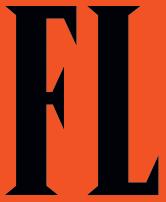
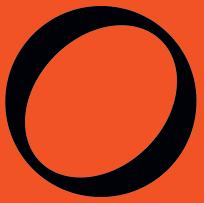
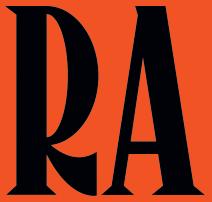

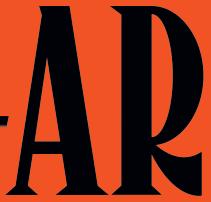
 cocktail of tension and tenderness’ Sally Hinchcliffe
vivid, visceral read’ Tracy Chevalier
cocktail of tension and tenderness’ Sally Hinchcliffe
vivid, visceral read’ Tracy Chevalier

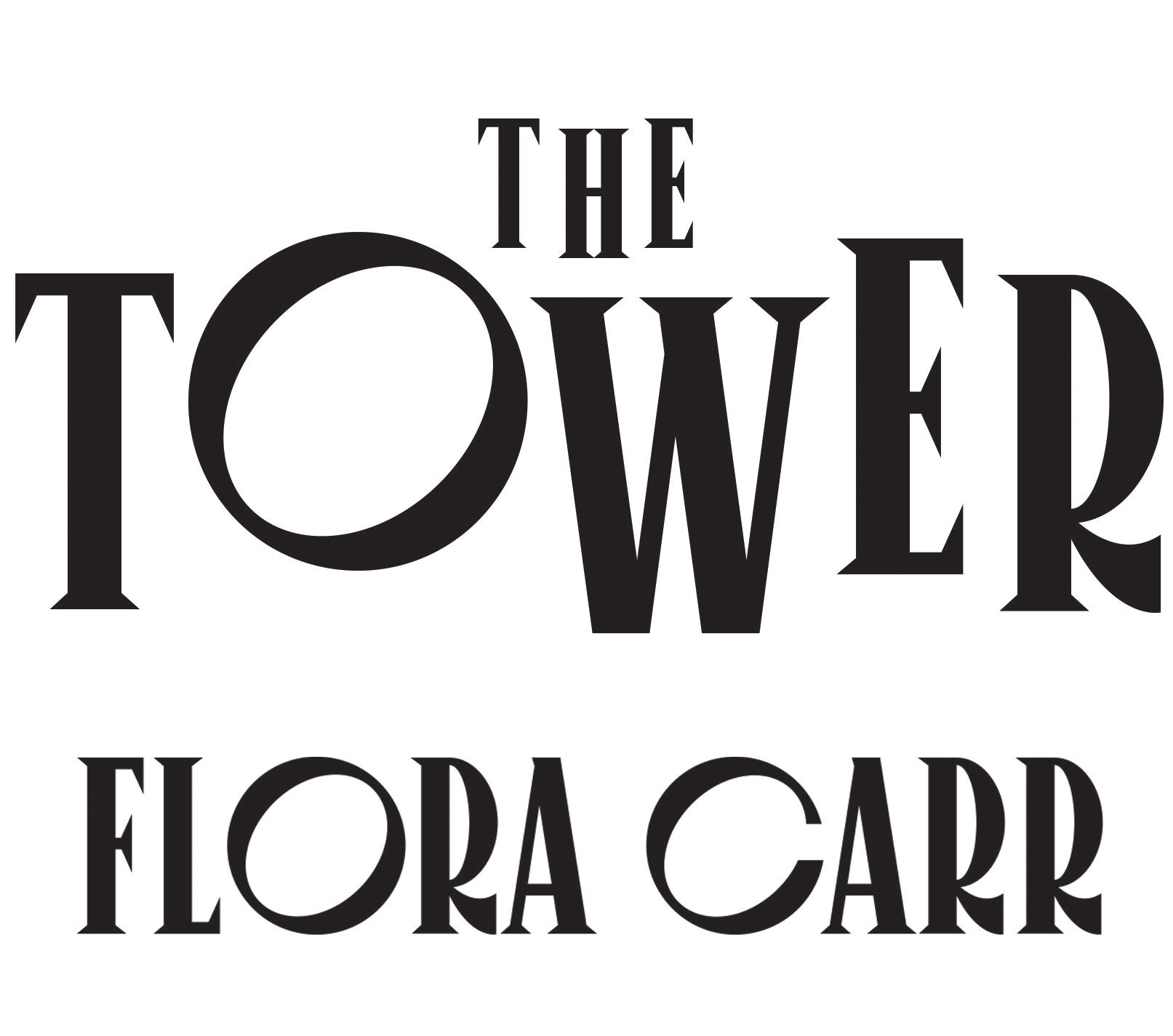

Hutchinson Heinemann 20 Vauxhall Bridge Road London SW 1V 2SA
Hutchinson Heinemann is part of the Penguin Random House group of companies whose addresses can be found at global.penguinrandomhouse.com
Copyright © Flora Carr, 2024
Flora Carr has asserted her right to be identified as the author of this Work in accordance with the Copyright, Designs and Patents Act 1988
Lines of poetry on p. 239 adapted from Richard Sieburth’s translation of Louise Labé’s ‘La Belle Cordière’ from Love Sonnets & Elegies (NYRB Poets, 2014). Used by permission The New York Review of Books
First published by Hutchinson Heinemann in 2024 www.penguin.co.uk
A CIP catalogue record for this book is available from the British Library
ISBN (Hardback): 9781529153729
ISBN (Trade paperback): 9781529153736
Typeset in 12/16.5 pt Bembo Book MT Pro by Jouve (UK), Milton Keynes Printed and bound in Great Britain by Clays Ltd, Elcograf S.p.A.
The authorised representative in the EEA is Penguin Random House Ireland, Morrison Chambers, 32 Nassau Street, Dublin D 02 YH 68
Penguin Random House is committed to a sustainable future for our business, our readers and our planet. This book is made from Forest Stewardship Council® certified paper.
For Alex, Philippa, Peter and Alexandra
Cast of characters
The women
Mary, Queen of Scots
Jane – a Scottish chambermaid
Marie de Courcelles; ‘Cuckoo’ – a French chambermaid
Lady Mary Seton – a noblewoman and companion to Mary
Margaret Erskine – a former mistress of Mary’s father, James V of Scotland, and mother to William Douglas, George Douglas and Moray
Agnes Leslie – wife of William Douglas
Agnes ‘Anna’ Keith – wife of Moray
The men
Lindsay – a rebel lord and son-in-law of Margaret Erskine
Moray – a Scottish nobleman and bastard half-brother of Mary
Ruthven – a rebel lord
William Douglas – Laird of Lochleven and son of Margaret Erskine
George Douglas – younger brother of William Douglas
Robert Melville – a Scottish diplomat
Andrew Melville – younger brother of Robert Melville
Will – a boy living at Lochleven Castle
Cast of characters
The ghosts
Lord Darnley – an English nobleman and Mary’s second husband
David Rizzio – a musician and courtier
Marie de Guise – Mary’s mother
Francis II of France – Mary’s first husband
Saint Margaret of Scotland
Anne Boleyn – former Queen of England and mother to Elizabeth Tudor
Leonardo da Vinci
The absent
Lord Bothwell – a Scottish nobleman and Mary’s third husband
Elizabeth Tudor – Queen of England and Mary’s cousin
Catherine de’ Medici – Mary’s first mother-in-law
Prince James – Mary’s infant son
Summer
From far away, she looks like a roosting bird. She squats, her cloak spread out over the grass on either side. The hem of her nightdress is lifted out of the way, and her hands – large, white – clutch at the folds of linen smock beneath, her elbows aloft, forming triangular wings. Her neck is bent towards the ground, like a waterbird peering beneath a wave. Dawn is breaking as Mary empties her bladder onto the damp grass.
When she is done, she wipes her hands on her front, like a butcher smearing away the day’s blood. Her women, who have been shielding her from the men, now run to her side. In normal times, there would be a gaggle of jewelled noblewomen to accompany her, women who have known Mary since she first sailed to France as a child. But these two women are professional companions, chamberers of mean parentage, conveniently obscure; Mary’s skeleton staff for the days ahead. For what lies beyond the water.
Flora CarrThe three women stand at the edge of the loch, its surface burnished gold with the reflected sunrise. The first chamberer is Marie de Courcelles, or Coucou. Cuckoo. Cuckoo is a scowling Frenchwoman who traded the warmth and elegance of her homeland for the Scottish court five years ago. She is in her mid-twenties, blonde, and pink-faced as though she has been leaning over a steaming pot; there are stray broken veins on her nose, from a sunburnt adolescence and an adult fondness for drink. The second woman is Jane, or Jean, or Janet, depending on the name she gives you. She is young, and Scottish, and has only been with Mary for a short time. Her face seems at once familiar and forgettable – unless you meet her eyes. She is like a wren: small, quick, dark. While Cuckoo is known for her frankness, her hot passions, Jane’s thoughts belong only to herself and her God.
Mary is shivering. She wraps her cloak tight around her body, and turns. Her belly protrudes, a swollen pillow of flesh, bigger than expected for a woman claiming to be only a month into her pregnancy. This will be her second child, and already she’s afflicted with the same morning sickness that plagued her previously. There’s a sour reek of piss, mingled with Mary’s breath: hours- old vomit. She begins to cry – she cries easily, especially now – and tells her women she cannot stand it. She cannot speak or breathe without regurgitating the stench of her last meal. Her throat is still burning. Jane reaches into her bodice and pulls out a sprig of lavender, warm from her skin, and waves it in front of Mary’s nose.
Cuckoo trumps her with an orange studded with cloves, a gift from Mary herself in better times.
The men are there. Cuckoo, who still speaks little of the Scots language, has both the innocent boldness of a child and the
protective hostility of a foreigner; she stares them down with contempt. Jane, eyes lowered, wants to caution her.
She says nothing.
In her palaces, Mary moved like a courtesan, or an artist’s model: arching her back, supple-boned, tilting her head, pouting her mouth. Playing with loose strands of hair. Biting her bottom lip as she read. Touching herself: her neck, her chest, her wrists, trailing fingers across bare skin as though lost in thought. Aware, always, of the eyes on her. Now she coughs up bile on the grass. Now she sniffs under her armpits. Now she walks away from a puddle of her own piss, her cloak trailing. Her nightgown is ripped, and she does not care.
In two days, Mary’s son James will turn one. A whole year has passed since the triumph of his birth. At his christening, the archbishop tried to spit into his mouth, as is the custom. Mary refused. The priest, who kept a mistress called Grizzel, was syphilitic. No pocky priest would share his dribble with her baby, she said. Now she looks up and over the water, eyes bile-stung, and knows her son is with her enemies.
The men are talking with the boatman; he is as haggard and gaunt as Charon, the old seaman who navigates the dark undertow of the River Styx, ferrying souls all the way to the gates of the underworld. The three men speak in low voices, huddled together by the shore of the loch. At the centre of the loch, there is a tiny island visible. A grey stone castle stands on it, a collection of buildings and towers half-hidden by trees. Old-fashioned. Square. Brutish. Haunted, too, by men and women butchered there during a siege two centuries ago. Mary has been here before. She remembers the castle, the cold interior. In some places the water is almost lapping at the walls outside, like a jealous beast, hungry
and covetous. Cuckoo accompanied her here once, three or four years ago.
‘God’s blood. Not this place,’ Cuckoo says; but only Jane hears. The boat is ready.
Mary goes first. Of course she does. Her women stand behind her in the mud and hold out their arms, palms up like peasant women herding geese, as she steps into the bobbing boat. The morning sky is still reflected on the water’s surface and has changed colour to pink, as though someone has rolled out a bolt of Turkey satin over the loch.
‘She goes next,’ the first man says. Jane picks up her skirt. She stumbles forward, and for a moment she reaches out, as if to catch a waiting hand. But Mary looks ahead across the water, her back turned, and Jane rights herself and sits behind her. Cuckoo follows. The boat is narrow, made narrower still by the women’s skirts.
The men, at the other end of the boat and out of Mary’s earshot, whisper and jostle and crack jokes about her women. They wonder which of the two has the sweeter cunny. Which has been had before. Jane wants to slap them. She has a hard backhand, a solid punch; she knows this because she once broke a man’s nose. In the boat, the first man is dark-haired like herself, and old – old enough to be her father. His sneering expression taunts her. Makes her hands itch. Here is a man who rapes his female servants at home, Jane is sure of it. He leers at Cuckoo, who cannot understand his words, who is still staring him down with suspicion and anger; she knows Mary hates him and that is enough for her. Jane looks at the man and knows a woman’s protests excite him. He likes it when they scream, and bite, and twist their legs together.
His name is Lindsay.
The second man is younger, in his early twenties – another nobleman, his power a recent inheritance. He is the son of a dead madman. His father stormed Mary’s palace apartments last winter, a full suit of armour clanking under his billowing nightgown, like a ghost in a play. His skin was grey; he was dying even then. Now his son escorts Mary to her imprisonment, eyeing her with a young man’s lust for flesh and power.
His name is Ruthven.
Both men in the boat were also among that party who stormed Mary’s apartments. Led by Ruthven’s grey-faced father, they murdered Mary’s favourite servant, the curly-haired Italian David Rizzio. He was stabbed close to sixty times; it was the next best thing to stabbing the queen.
The heavy oars slide in and out of the water, slicing through the still surface like long knives. Mary sits motionless, her face and tall straight-backed body turned towards their destination, as though she is the ship’s carved masthead. Jane looks at the back of Mary’s neck. Her hair was pinned up a day, two days ago, but she’s slept since, and the style is mussed, unravelling. Jane can see the fine soft hair at her nape, similar to when a newborn is first bathed and dried, the thin strands puffed up like a halo around fragile scalp. She hears whispered words in Latin, and realises Mary is praying under her breath. Catholic prayers for the Catholic queen. Jane catches the odd word or phrase. Pater Noster . . . Dominus tecum . . . Deus meus.
Jane thinks praying in Latin must be like caressing a loved one’s face with gloved hands.
Mary’s elbow rests on the side of the boat, and Jane reaches out and touches the cloth of her dress to comfort her. Jane is brisk,
nervous, unsure. To touch a queen – even through nightgown and smock beneath – is no small thing.
‘Almost there,’ Mary says, and her voice is bright and shining as a pearl, as though she is the one offering solace, her accent buttery through pursed lips. Kissable. French is by far the most kissable of all the European tongues, and teasing; there is a constant lilt at the end of her sentences. Oui, she says, and you are left in agony: is she doubting, or incredulous? Innocent, or cunning? It drives men and women to madness. Mary is that potent combination: both a beautiful woman and a royal. The two conditions that draw the gaze of men and women alike. Such a person is elevated, fortified by the dual allure of youthfulness and the ancient. We are compelled to look at such a person, their beauty somehow confirming all the promises of monarchy.
The boat plunges to one side, and Mary’s elbow slips. Her arm is underwater, all the way up to her armpit, her shoulder, and she squeals from the shock of it, from the icy cold of the morning water. The boat rights itself, and she falls back.
‘Arrête! ’
Jane turns in her seat and sees Lindsay has been rocking the boat, a grin on his face like a child. Cuckoo has cried out in protest and he likes it, he likes to hear the word ‘stop’ in a woman’s mouth, and he looks to Mary, too, to see her reaction. Jane raises her arms, lifting her cloak like a curtain so he cannot see the queen’s easy tears.
‘Perhaps I should keep going,’ he says. ‘It would not matter if we capsized. Ruthven and I are strong swimmers.’ He looks at the women, as if to say: And you three are not.
The women – one Scot, one French, the last neither one nor the other – stay silent. Eyes down. Drowning is one of the worst ways
to die. That, and fire: being burned alive. If they are to be killed, better something quick, like a knife between the ribs in some quiet corner of the castle.
Mary’s husband once beat a man to death, right in front of her. They were walking arm in arm in a castle garden, and an old man, a servant out of work, came begging for coin. He bent to clutch at her hem with shaking hands, kissing the cloth. He struggled to stand. Mary’s future husband – because they had not yet married – punched and kicked the old man until he coughed up blood and crawled through the dust and out of reach. He died two hours later. Mary still married him, her third husband: Bothwell. She wore a black velvet dress in the Italian style: her widow’s weeds for her late second husband. After the ceremony, she changed into jubilant yellow silk, the colour of egg yolk. The following day, courtiers heard her shouting for a knife to stab herself with. She knew what her husband was. She remembered the old man lying in the dust, chewing his own blood clots, dying his slow death. Now, in the boat, she prays for both men. She prays for their souls. She prays for her own.
They are reaching the edge of the castle island. Jane thinks she can see faces at windows. They are going to kill Mary. Will they kill her and Cuckoo, too, or first offer coin for their silence? Jane does not think there is enough gold in Scotland to buy Cuckoo’s loose tongue. In any case, Lindsay will not allow witnesses to leave the island. How will they do it? How will they kill the queen? They might try to jog the baby out of her, praying she bleeds away with it. Drowning seems like the obvious answer: why else bring her to a castle in the middle of a loch? But an assassination must be quiet, and drowning is not. She will get a blade or a pillow, Jane thinks. But for herself and Cuckoo, she knows the men will dispose of them
like unwanted kittens. Sealed in a water barrel, or thrown over a wall. Skulls bashed in, their bodies discarded like waste, like vermin. They will be raped first. For men, death and desire go hand in hand. Jane knows this. She has had the knowledge pushed into her.
Lindsay whispers in the boatman’s ear, and the prow turns away from the jetty and towards the shore of the castle island. Ruthven says, loudly, something about tides, and currents, and Jane looks back at him, her face like a mask. Does he think we are fools? They want only to humiliate her – Mary.
The boat is at the water’s edge, and there are people standing in front of the castle walls. Waiting for them, for Mary. The boat’s passengers are forced to climb out, wading through the shallows, splashing, each of the women’s skirts floating up in a circle. A young man, about Ruthven’s age, steps forward. He is hunched and wheezing in the summer air, which is lively with pollen. He bows low as Mary squelches through mud and silt towards him. She holds out her hand for him to help her out of the water, but he, confused, drops a clumsy kiss on her knuckles.
The room is sparse and cramped, with all the signs of hurried preparations: a small table with a jug, ale slopped over the sides. Two pallets with straw mattresses for Jane and Cuckoo, shoved into a corner. Rushes and herbs strewn, unevenly, over the wooden floorboards. A four-poster bed, crudely made. The bed sheets are creased on the side furthest from the door, as though a servant, in their haste, gambled on the occupant only viewing the nearest half. Jane notices (for it is her job to notice these things) that there is only one piss pot for three women.
Mary falls backwards onto the bed, eyes shut, and spreads out
her arms. Cuckoo, who kneels to unlace Mary’s boots, cannot see her face over the mound of her belly. The door stands ajar behind its heavy curtain. A lingering servant – or is he a guard? – grasps the handle and peers into the room, his eyes on Mary’s face. Jane realises she is swaying where she stands; she plants her feet wide, like an English king.
‘I need white wine for the queen, the best you have,’ she tells the man.
‘There is already refreshment for the lady.’ He does not look at her.
‘Not for drinking. The queen washes her face with wine. A small jug will do for today.’
The man laughs and disappears backwards behind the curtain, unwilling – or perhaps unable – to turn his back on a royal person: the last breach of etiquette.
‘Where is my own bed?’ Mary says, addressing the ceiling. Then: ‘I will have his head, Lindsay will lose his head, I swear.’
The room smells of dank river water; the scent is stronger than it was when they rowed across the loch, as though the castle is submerged. Jane looks down at the rushes on the floor and imagines them standing upright, with water pooling around her and Cuckoo’s legs and the wooden bedposts, rising up to lap at Mary’s dangling feet. The boots are unlaced and removed; she wears knitted stockings worn down at the toes.
Mary wants to rest, to sleep. She wants the torn nightgown off, she’ll sleep in her smock; she sits up, arms above her head, and Cuckoo gathers up the material in her hands and peels it off, handing the crumpled dress to Jane. They will need to ask for sewing equipment for the rips, and for the stockings.
‘I’ll take the right,’ Jane says, and she and Cuckoo kneel at
Mary’s feet to pull off a stocking each. Mary jerks a leg, impatient, and the tips of Jane’s fingers brush bare skin. She holds her breath. To lay hands on Mary’s clothed body is one thing, but her skin is another. A queen’s touch is not like the touch of other women. With it comes a frisson: of the anointed, the sacred. It is like touching a living, breathing effigy; the cool shock of marble. Of the blessed, and forbidden, and the dead. These are the hands that held the orb and sceptre. Queen of Scotland at just six days old and raised to become Queen Consort of France. These are the hands of a queen who has touched other queens, past kings and future kings: her son, James, her blessing and her death. Their touches and caresses are imbued in Mary’s skin like holy oil, and she in theirs. Generations will pass, and a royal child will be placed, newborn, into its parents’ arms, and pressed against their skin the child will feel the echo of Mary and her prized white fingertips.
They put Mary to bed. It is still only morning, the two women are hungry. They sit at the small table and eat bread sliced hours earlier. Cuckoo’s stomach growls; she is thinking of marchpane flavoured with rose water, of candied violets and stiff Italian biskets dipped in sweet wine and softened into white mulch tasting of anise seed. Mary’s favourite is frittered pears. An assassin at the French court once tried to poison the dish when she was a child; the plot was discovered in the spring and the culprit executed. By late summer the fruit trees had ripened and the child-queen feasted safely on pear, thinly sliced and battered in sugared ale with cloves and saffron. The warm spiced scent heralded the change in seasons.
Mary has turned onto her side, and her left hand dangles over the side of the bed, her fourth finger ringless; Bothwell insisted on a Protestant ceremony, with no popish wedding rings for either bride or groom.
‘How long will they hold us?’ Cuckoo whispers, in French; always in French.
Jane shakes her head, she doesn’t know. Cuckoo is her senior – in experience, in access to Mary – but royal etiquette is less important here than wit and a steady hand; prettiness is no longer God’s blessing but a disadvantage, as is Cuckoo’s native tongue. An invisible Scot is far more likely to escape this, to survive this.
A knock on the door. The guard, bearing a jug of white wine. He is smirking. Jane thanks him in a whisper, angling her body to hide the bed from his view. When he is gone, she sniffs: a sour green reek, pungent and familiar. It fills the room. The same scent from the edge of the loch: Mary’s cloak trailing behind her in the wet grass as she cried over her body’s stench, the lingering smell of its waste. The futile orange, studded with cloves and wafted beneath her nose.
Jane sets the jug down. ‘Don’t touch it,’ she says to Cuckoo. She fetches the piss pot and empties out the jug’s contents into the bowl.
The wine is a dark yellow.
When Mary wakes, her women will tell her there was no white wine in the castle cellar.
Jane thought that danger would come in the form of men: the men who seek Mary, who want to burn away the oil that anoints, to destroy the body that bears history, bore history.
But the danger is no longer confined to outside the prison walls.
Mary is starving herself. Days have passed and she will not eat. She will not drink. She will not leave her bed except to piss and shit and to vomit first thing. Yet her body continues to swell and swell, the dome of her belly rising too fast, unnatural; as though
there is an animal crouching inside, arching its spine. Her body is bloated and tender and translucent as a gooseberry; the veins green-grey, with dirty pond water swilling about inside instead of blood. Jane and Cuckoo coax and cajole her; she has a child to feed, they tell her. But Mary screws her eyes shut and turns her face away. When she speaks, the sentences are disjointed, her thoughts back to front as though she were drunk. In the dark corners of the room, the walls are egg-freckled with mould. Behind the curtain at the door, guards slide plates of stale food across the floorboards before slamming the door shut again, as though the room is marked for plague. The women are surrounded, always, by the sounds of unseen others: the slosh of water from the cellar below; footsteps from above. At night, shadows rush across the ceiling, knives in hand. Jane raps on the door and demands more firewood, more blankets; for more tapestries to mount on the walls, and better food to tempt Mary.
No one answers.
It is evening. A fire is lit, but there are still draughts, and the stone room feels chilled as an underground vault. Outside, they hear an owl calling in triumph, some tiny scrap of fur caught in its claws. It is too dark to see the water surrounding them, but they can hear its whisper, the words muffled: secrets just out of reach. Come closer, it says. Closer. Jane sits on the bed beside Mary and feels her forehead and neck. She is feverish. Her face is puffy and shadowed in the low light, the skin almost waxy in texture. Jane looks down at her and wonders if this is still la plus parfaite, the same woman the poet Ronsard once called the most divine creature on earth. She recalls a rumour: a palace cook, ruminating too long over the shape of Mary’s lips, overcooked a batch of oranges and accidentally invented marmalade. Other versions of the tale exist: in one, the cook stirred
his spoon round and round and round, tracing the curve of Mary’s adolescent breasts. The child-queen, peering up from the bottom of a cooking pot, strips of orange rind for hair and mouth. Jane imagines the simmering outline, bubbling and spitting hot liquid straight into the cook’s eye. His shouts of pain.
The real Mary does not spit, she dribbles; the ale brought to her mouth leaks out, trickles back over her lips. She does not want it – take it away, she says, with more energy than her women thought possible. She sinks back under the sheets – she is theatrical, even now – but when Jane begins to stand, Mary grabs hold of her wrist, her eyes still shut. She clasps her hand.
‘They want me dead, don’t they?’
Jane says nothing. She, too, has been afraid to eat the dishes brought to their room, but she has eaten them anyway. There have been no more jugs of piss (she checks each time), and a quick end from poisoning is better than dying hungry.
Cuckoo, on the other side of the bed, looks down at the two women’s hands, their fingers intertwined.
‘How can she stand it?’ Mary says, and she is whispering, her eyes rolling beneath their lids. ‘How can she hear what they have done, and not wage war on them?’
‘Perhaps she will,’ Jane says.
Cuckoo tries to catch her eye. Qui? she mouths, and her lips stretch and form a smile on the word, as though it tastes sweet. Who?
‘You know she wanted to marry me,’ Mary says. Her lips are cracked; her women notice at the same moment. Jane thumbs the blood away with her free hand.
‘Who wouldn’t want to marry you, your grace,’ Cuckoo says, distracted.
Mary finally opens her eyes. They are amber brown; the fire reflects off them, as though she is a fox, a night animal. The whites of her eyes are bloodshot, and her gaze roams about the room, unfocused. She looks up at Jane in confusion and releases her hand.
‘I thought I was somewhere else. With someone else.’
Cuckoo ducks her head. Jane thinks she sees her smile; she ignores her.
‘I thought I was with my dear Seton.’
Lady Seton. She is Mary’s favourite friend, a lady-in-waiting who travelled with her to France as a child and attended her there and in Scotland. It is no surprise to Jane that Mary should mention her name. Mary would surely prefer Seton’s presence over Cuckoo’s or my own, Jane thinks with bitterness. But there is a reason why they are here and Seton is not. Jane and Cuckoo are not ladies-inwaiting, aristocratic companions. Nor are they maids of honour, the step below in rank. Jane and Cuckoo are not noblewomen. They are chambermaids. They are equipped to care for Mary’s basic bodily needs. But their presence serves another purpose. Mary has been stripped of her illustrious retinue. The men who denied Mary the presence of her ladies-in-waiting, permitting only her chambermaids, meant to strip her of her rank, the signifiers of her royalty: her clothes, her jewels, and her high-born women.
‘I thought I was somewhere else,’ Mary repeats.
‘We are at Lochleven,’ Jane says, gentle.
‘I know, I know.’ Mary is irritated. ‘I know,’ she says again. ‘I know, I know, I know,’ and now tears well in her eyes, her mood changing so quickly that Jane forgets to arrange her face – to look at once sympathetic but hopeful, never pitying – and it is Cuckoo who produces the handkerchief with practised hand, who dabs at
fallen tears, who Mary turns to now, her arms raised at the elbow. Jane cannot decide if she looks like a priest bestowing God’s blessing, or a sickly child grasping for their mother’s neck.
‘You remember this place, Cuckoo?’ Mary says. She does not wait for a response before she adds, her face turned away once more: ‘The home of my father’s mistress.’
There is a cough from outside the door.
The women stare at each other. They do not move; their breathing seems too heavy, too loud. The fire crackles. Mary still holds her arms up; they are frozen in place. The tableau is like a painting: the dark panes of the women’s faces, and the fire the only light in the room.
There is the sound of footsteps. More people are outside the door. A stew of voices and muffled words. There is a crack.
Jane thinks she hears the clink of metal, of swords.
She thinks she hears the rustle of a travelling cloak.
She thinks she hears the whispers of drunken men, looking for warmth.
She offers a silent prayer that is neither repentant nor in Latin.
Standing, she strides to the end of the bed and fumbles for something underneath. Cuckoo stares at her in confusion; Jane straightens, and moves to stand behind the door. In her hands are the discarded stockings, untouched for days, now twisted and stretched out like a rope.
In a moment, she will convince herself that it is for Mary; but as she first steps behind the door, she is thinking only of herself, and of how much she would like to leave this cold, tomb-scented castle alive.
Cuckoo gapes at her in horror; Jane catches her eye and nods towards the empty jug. Aim for the head, she mouths. Mary is
blank- eyed; she cannot seem to see the dark figure of Jane standing behind the door, fists clenched around Mary’s own stockings.
The voices subside, as though moving away, up or down a staircase.
There is silence.
The women wait.
When there are no more sounds, Cuckoo begins to stroke Mary’s hair. Jane has not moved since she took up position by the door. She looks over at the bed. She has heard of Mary’s bravery, of her daring. All of Scotland knows she once faked a miscarriage to escape capture. Her servant David Rizzio was stabbed to death at her feet and the rebel lords sought to overthrow her, imprisoning her in her own rooms. At six months pregnant she spent an entire day screaming and writhing and convulsing, convincing all around her that she and the unborn child were dying. She persuaded her worthless husband, Darnley, to switch sides and help her escape. Everyone knows that, in battle, Mary – born under Sagittarius – rides her horse astride, dressed in Florentine serge breeches and polished armour, like a second, shining Joan of Arc. When her own half-brother the Earl of Moray rebelled against Mary’s marriage to Darnley, there was a stand- off between their respective troops; Mary led her own men, straight-backed and armed with a pistol.
Jane cannot reconcile that warrior queen with the woman lying in Cuckoo’s arms.
She drops the stockings and goes to her.
‘Who did she mean?’ Cuckoo asks, when Mary is asleep. ‘When she talked of the woman who would not go to war.’
‘Elizabeth.’
